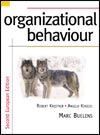 |
1 |  | 
Ethnocentrism is the belief that one’s native country, culture, language, and behaviour are superior to others. |
|  | A) | True |
|  | B) | False |
 |
 |
2 |  | 
In high-context cultures written and spoken words carry the burden of shared meaning. |
|  | A) | True |
|  | B) | False |
 |
 |
3 |  | 
Cross-cultural training, including intensive language study, is the best way to avoid culture shock. |
|  | A) | True |
|  | B) | False |
 |
 |
4 |  | 
_______________ challenge(s) virtually all employees to become more internationally aware and adept. |
|  | A) | Japanese competition |
|  | B) | Japanese managerial success |
|  | C) | Globalisation of the economy |
|  | D) | Economics of scale |
|  | E) | Cultural differences |
 |
 |
5 |  | 
______________ is the belief that one’s native country, culture, language, and behaviour are superior to others. |
|  | A) | Ethnocentrism |
|  | B) | Proxemics |
|  | C) | Cross-cultural management |
|  | D) | Collectivism |
|  | E) | Expatriatism |
 |
 |
6 |  | 
People from _____________ cultures rely heavily on situational cues for meaning. |
|  | A) | high-context |
|  | B) | low-context |
|  | C) | monochronic |
|  | D) | universalist |
|  | E) | relativist |
 |
 |
7 |  | 
In ____________ cultures, written and spoken words carry the burden of shared meaning. |
|  | A) | high-context |
|  | B) | low-context |
|  | C) | universalist |
|  | D) | polychronic |
|  | E) | relativist |
 |
 |
8 |  | 
The Germans have a _____________ culture. |
|  | A) | universalistic |
|  | B) | relativist |
|  | C) | low-context |
|  | D) | high-context |
|  | E) | collectivist |
 |
 |
9 |  | 
People from _____________ cultures tend to place greater emphasis on community goals and subordinate their own wishes and goals. |
|  | A) | monochronic |
|  | B) | relativist |
|  | C) | low-context |
|  | D) | heterogeneous |
|  | E) | collectivist |
 |
 |
10 |  | 
People in polychronic cultures view time as |
|  | A) | linear. |
|  | B) | standardized. |
|  | C) | precise. |
|  | D) | multidimensional. |
|  | E) | inelastic. |
 |
 |
11 |  | 
Someone from England is likely to require greater interpersonal space than someone from |
|  | A) | Korea. |
|  | B) | the US. |
|  | C) | Canada. |
|  | D) | Switzerland. |
|  | E) | Germany. |
 |
 |
12 |  | 
When attempting to communicate across cultures, experts recommend |
|  | A) | speaking English, since it has become the language of global business. |
|  | B) | seek out a reliable translator. |
|  | C) | avoiding any and all computer transmissions. |
|  | D) | using only written communication to increase accuracy. |
|  | E) | learning the local language. |
 |
 |
13 |  | 
Based on the Hofstede-Bond stream of research, _____________ reflects the looseness or tightness of the bond between individuals and societal groups. |
|  | A) | power distance |
|  | B) | individualism-collectivism |
|  | C) | masculinity-femininity |
|  | D) | uncertainty avoidance |
|  | E) | long-term versus short-term orientation |
 |
 |
14 |  | 
____________ refers to anyone living and/or working outside their home country. |
|  | A) | Expatriate |
|  | B) | Repatriate |
|  | C) | Indigenous |
|  | D) | Native |
|  | E) | Host sponsor |
 |
 |
15 |  | 
Reentry shock can be reduced with |
|  | A) | host-country sponsorship. |
|  | B) | extended expatriate assignments. |
|  | C) | repatriating training. |
|  | D) | home-country sponsorship. |
|  | E) | cross-cultural training. |
 |




 2002 A McGraw-Hill Online Learning Centre
2002 A McGraw-Hill Online Learning Centre